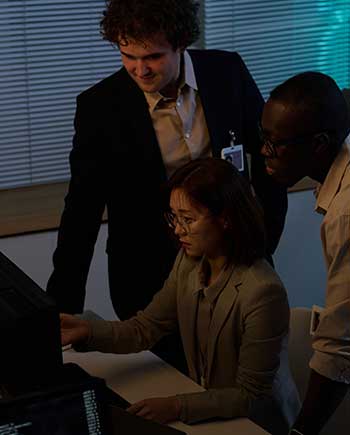
Sub-Saharan Africa and Open Source, Internet-based Due Diligence
In January 2019, the International Monetary Fund released its annual world economic outlook and sub-Saharan Africa as a whole is forecast to grow by 3.5 percent in 2019. While some of this growth will be driven by organic development of African economies, other drivers will be foreign direct investment and international firms entering new African markets or expanding in existing markets. As foreign firms increase their interests and investments in Africa, they will have to take steps to protect those interests and increase their odds of success in what, for many, might be a very unfamiliar environment.
How can firms mitigate the various risks that come with entering or operating in emerging markets, especially in critical areas such as hiring key staff or local representatives, forging local partnerships or engaging new local suppliers? Responsible firms conduct comprehensive due diligence research that provides critical insights to underpin effective decision making. Thorough due diligence research involves a wide range of elements, such as the examination of a potential supplier’s financial records, an audit of a firm’s manufacturing process or an individual’s credentials.
While the importance of a thorough due diligence exercise is clear, the value of open sourced Internet based research is often overlooked as a way to bolster traditional methods and save time and money. This is especially true in “data poor” African markets where official information and data can be difficult to obtain, may not be current or are sometimes unreliable or incomplete. Here are three examples of how an open source component can provide an indispensable layer to your due diligence research.
First, open source research can be a highly effective first line of inquiry. Using only limited initial information, trained and experienced open source researchers can quickly deliver research results that either align with or challenge your baseline information. This type of preliminary scan helps clients identify specific areas for more detailed enquiry in later stages of the due diligence research process or, in some cases, shorten the process because the preliminary findings are sufficiently convincing that the information and questions arising from the scan lead clients to conclude that the subject is or is not a suitable partner. In either case, the open source research helps clients maximise efficiencies and effectiveness in their due diligence efforts.
Second, as the due diligence process unfolds, open source research provides clients the capacity to cross-check findings uncovered by traditional methods and sources and, likewise, the open source research will continue to surface information that can be cross-checked, in turn, by traditional methods. This multi-source, cross-checking approach deepens the effectiveness and thoroughness of the overall reliability of the due diligence exercise.
Finally, open source research enables the trained and experienced analyst to reach deep into many different Internet channels that are usually beyond the reach of traditional methods and the inexperienced. By accessing a wide range of social media channels and the dark web, for example, analysts can paint a fuller picture of the subject than is otherwise possible with traditional methods alone. Not only does the client learn about the subject’s online profile, but we also learn what other people or firms say about the subject. Also, this line of analysis is a powerful way to understand the subject’s links and relationships to individuals, firms, political figures/parties and other actors who might have an impact on the client’s interests. In many cases, these key links are left unreported in initial information and are not obvious without this kind of analysis.
Sub-Saharan Africa is increasingly an exciting emerging regional market for international businesses, in many sectors. This is true for both large markets like Nigeria, Cote d’Ivoire and Kenya and smaller markets like Ghana and Rwanda. An open source, Internet-based component to due diligence is a cost and time effective tool to add to your due diligence tool box.
To learn more about how Confidion can help, or to share your views on this issue, please contact us:
Robert Snell (robert@confidion.com) and Dave Beer (dave@confidion.com)